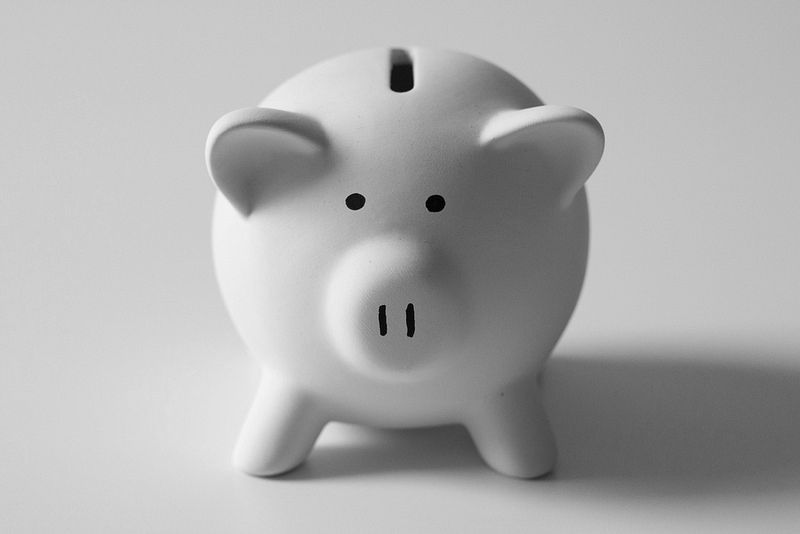|
Financial independence is reaching a point in your life where your passive income outweighs your expenses. Money is no longer a problem or a stress. Most people believe financial independence is for when you retire and no longer work, but it can happen at any point in your life.
In order to reach financial independence, there are six steps to follow: 1. Cash Flow- Earn more than one source of income and manage your expenses 2. Emergency Fund- Save 3-6+ months' income and prepare for unexpected expenses 3. Debt Management- Consolidate debt and eliminate debt! 4. Proper Protection- Protect against loss of income and protect family assets from risk of loss 5. Build Wealth- Strive to outpace inflation and reduce taxes with tax-advantaged investments 6. Preserve Wealth- Build a family legacy! Everyone wants to be financially independent, but sometimes it is hard to start planning for it. If you want to learn more on how Alchanati & Associates can help you or if you are interested and need help with starting now, contact us now! Keep Climbing
0 Comments
Everyone has their own definition of success. My definition of success is the achievement of specific goals adding up to the end goal of personal financial independence. In order to have your "success," you must start habits that will help you obtain it.
Some key habits of financially successful people are: 1. They spend time with other successful people- People with similar values share similar life goals! 2. They accomplish things everyday in order to achieve big future goals- The little things add up! 3. They set their own agenda- Have more control in your personal and professional life! 4. They spend wisely- Time and money! 5. They have multiple sources of income- You can never rely on only one! It is said that it takes 21 days to form a new habit so start now! Everyone uses money, wants money, needs money, works for money, thinks about money, desires money, and we all know money is the way we get the things we need and want. But do you know what money is?
Money is the medium of exchange. Centuries ago, people would barter to obtain the goods and services they needed by trading resources that were abundant to them, but not abundant to others. This terms the concept of transferability. In order to barter fairly, you needed to know how much of your resource would equal the amount of the other resource. Then in the 17th century, commodity money was created; using a type of good that functioned as currency. These goods had to be widely desired, valuable, easily storable, and portable. Gold and other precious metals are examples of this; they are widely used as a traded commodity, and before the 1970s, Gold was used to back paper currency in the US. Fiat Money is another type of money. It is inconvertible paper money made legal tender by the government, and it does not need to be backed by a commodity. Its value is set by supply and demand, people's faith in its worth, and by inflation or purchasing power. How is money measured? Money is measured by calculating three categories: M1, M2, and M3. M1: All physical denominations of coins and currency, demand deposits, and travelers' checkers. M2: All the money found in M1 + all time-related deposits, savings account's deposits, and non-institutional money market funds. M3: All the money found in M2 + all large time deposits, institutional money market funds, short-term repurchase agreements, and larger liquid assets. Adding M1, M2, and M3 together equals a country's money supply. How is money created? Money is created by either the Central Bank printing the bills or by them buying government fixed-income securities in the market. To buy these securities, the Central Bank can either create the money out of thin air or it can lower interest rates and allow banks to extend low-cost loans. This encourages businesses and individuals to borrow and spend more, and this increases the money supply in the economy. Money has changed in form throughout history, but there has always been a medium of exchange and a form of value. Money has many different forms, but it can be used anywhere because it is established and used everywhere. Is Real Estate a good investment?
Investing in real estate has become increasingly popular over the last 50 years. Investing in real estate can be complicated, but very profitable. There are many ways to invest in real estate: Rental Properties is one of the oldest practices. A person will buy a property and rent it out. The landlord is responsible for paying the mortgage, taxes, and maintenance costs, and the tenant is responsible for paying the rent and maintaining the property in accordance to their contract. Ideally, the rent paid should either cover the rental property expenses plus some more as profit or the landlord could choose to charge a rent that covers only the expenses and mortgage, and then make the monthly profit once the mortgage is completely paid off. Real Estate Investment Groups are like small mutual funds for rental properties. A company will buy a set of apartment blocks or condos and then allow investors to buy them through the company. The company takes care of the management in exchange for a percentage of the monthly rent. Real Estate Trading is buying properties with the intention of holding them for a short period of time, often no more than three to four months, and then sell them for a profit. This can also be termed "flipping houses." This technique is based on buying properties that are undervalued or that are in a hot market. Flippers can either buy the properties, wait until the value increases, and then sell for a profit or buy the properties, make improvements, and then sell for a profit. REITs or Real Estate Investment Trusts are created when a corporation uses investors' money to purchase and operate income properties. These are like stocks; they are sold on public exchanges and REITs pay out dividends to it's shareholders just like some stocks. There is no assured profit with real estate investing. There is always the risk of the property going underwater, you defaulting on your mortgage, or one of the tenants causing damages to one of your rental properties. But if you are willing and able to invest in real estate, you should take up the opportunity and reap the benefits of it. |
AuthorMy name is Camden Alchanati and my goal is to teach you how to create a future of financial stability and growth! Archives
June 2020
|
|
Phone: (323)-553-2411
alchanatiandassociates@gmail.com
|
|
All information stated does not represent The ACA Foundation's opinions and we do not claim responsibility for most of the content. This website does not provide individual or customized legal, tax, accounting, or investment advise.
All Rights Reserved
All Rights Reserved





 RSS Feed
RSS Feed

